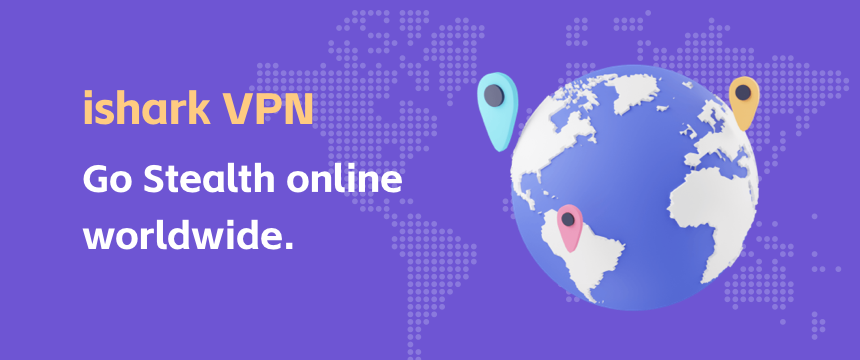VPN and Digital Payment Security: Best Practices for Protecting Online Payments and Transactions
ishark blog article
Introduction: With the widespread adoption of digital payments, we increasingly rely on online payments and transactions for everyday shopping and financial transactions. However, along with this convenience comes the risk of cybercrime and data breaches. To safeguard our online payments and transactions, using a Virtual Private Network (VPN) has become an important security practice. This article will provide key practices for using VPN to protect the security of online payments and transactions and discuss the risks and threats faced in online payments. Additionally, we will share recommendations for selecting VPN services and configurations suitable for securing online payments.

I. Key Practices for Protecting Online Payments and Transactions Using VPN
Encrypt Data Transmission: Using a VPN can encrypt your network connection, ensuring that your payment and transaction information is protected during transmission and preventing interception and theft by hackers.
Hide Real IP Address: VPN can hide your real IP address, making your online activities and transactions more private and anonymous, thereby reducing the risk of tracking and attacks.
Connect to Secure Wi-Fi Networks: When engaging in online payments and transactions, it's best to avoid using public Wi-Fi networks as they are susceptible to eavesdropping and man-in-the-middle attacks. Using a VPN can establish a secure encrypted tunnel over public networks, safeguarding the security of your data.
II. Risks and Threats Faced in Online Payment Security
Eavesdropping and Interception: Hackers may attempt to gain access to your payment and transaction information by eavesdropping and intercepting network traffic.
Malware and Phishing Attacks: Malware and phishing attacks are common tactics used in cybercrime that can result in the leakage or theft of your payment and transaction information.
Public Wi-Fi Risks: When using public Wi-Fi networks, your payment and transaction information is vulnerable to eavesdropping and interception by hackers.
III. Practical Examples of Enhancing Online Payment and Transaction Security Using VPN
Preventing Eavesdropping: By using a VPN to encrypt your network connection, you can protect your payment and transaction information from eavesdropping even when using insecure Wi-Fi networks.
Bypassing Geographical Restrictions: Certain regions may impose restrictions or block specific online payment and transaction platforms. By using a VPN, you can simulate IP addresses from other regions, bypassing geographical restrictions and gaining access to a wider range of payment and transaction options.
Enhancing Anonymity: Using a VPN can hide your real IP address, enhancing the privacy and anonymity of your online payments and transactions.
IV. Recommendations for Selecting VPN Services and Configurations Suitable for Online Payment Security
Security and Privacy Protection: Choose VPN services that provide robust encryption, privacy protection, and do not log user data. Ensure that the VPN service provider has a good reputation and reliable security measures in place.
Speed and Reliability: Select VPN services that offer fast and reliable connections to ensure smooth online payments and transactions.
Multi-platform Compatibility: Ensure that the chosen VPN service and application are compatible with the devices and operating systems you use, enabling VPN protection for your payments and transactions across different devices.

Conclusion:
Using a VPN is one of the key practices for protecting the security of online payments and transactions. By encrypting data transmission, hiding the real IP address, and connecting to secure Wi-Fi networks, we can enhance the security and privacy of online payments and transactions. By selecting VPN services suitable for online payment security and configuring them according to our specific needs, we can enjoy secure and convenient online payment and transaction experiences.
By adopting these security practices and leveraging the advantages of VPN, we can engage in online payments and transactions with greater confidence and mitigate the threats posed by cybercrime. Let's protect our payment and transaction security and build a secure and reliable digital payment environment!









